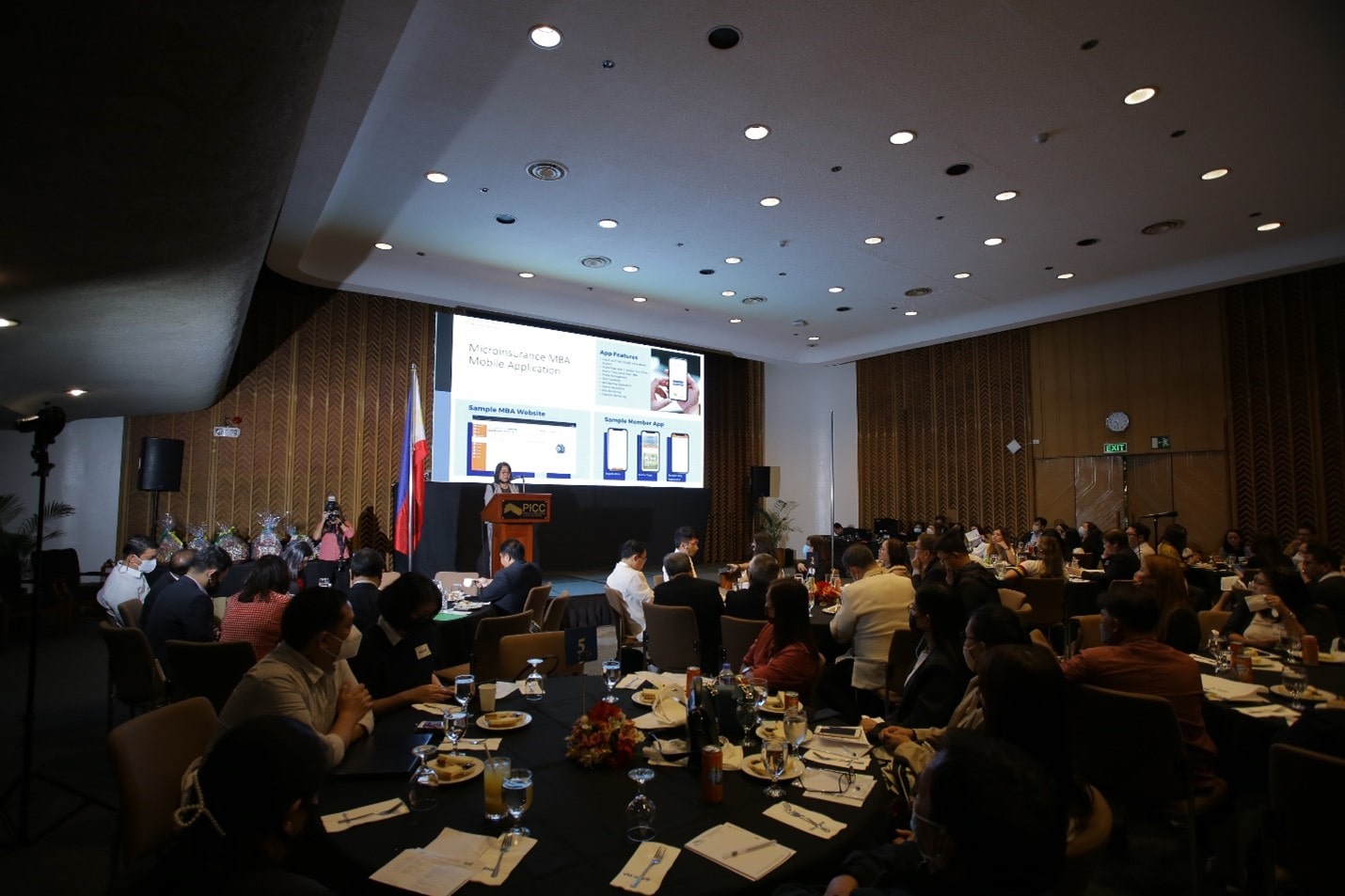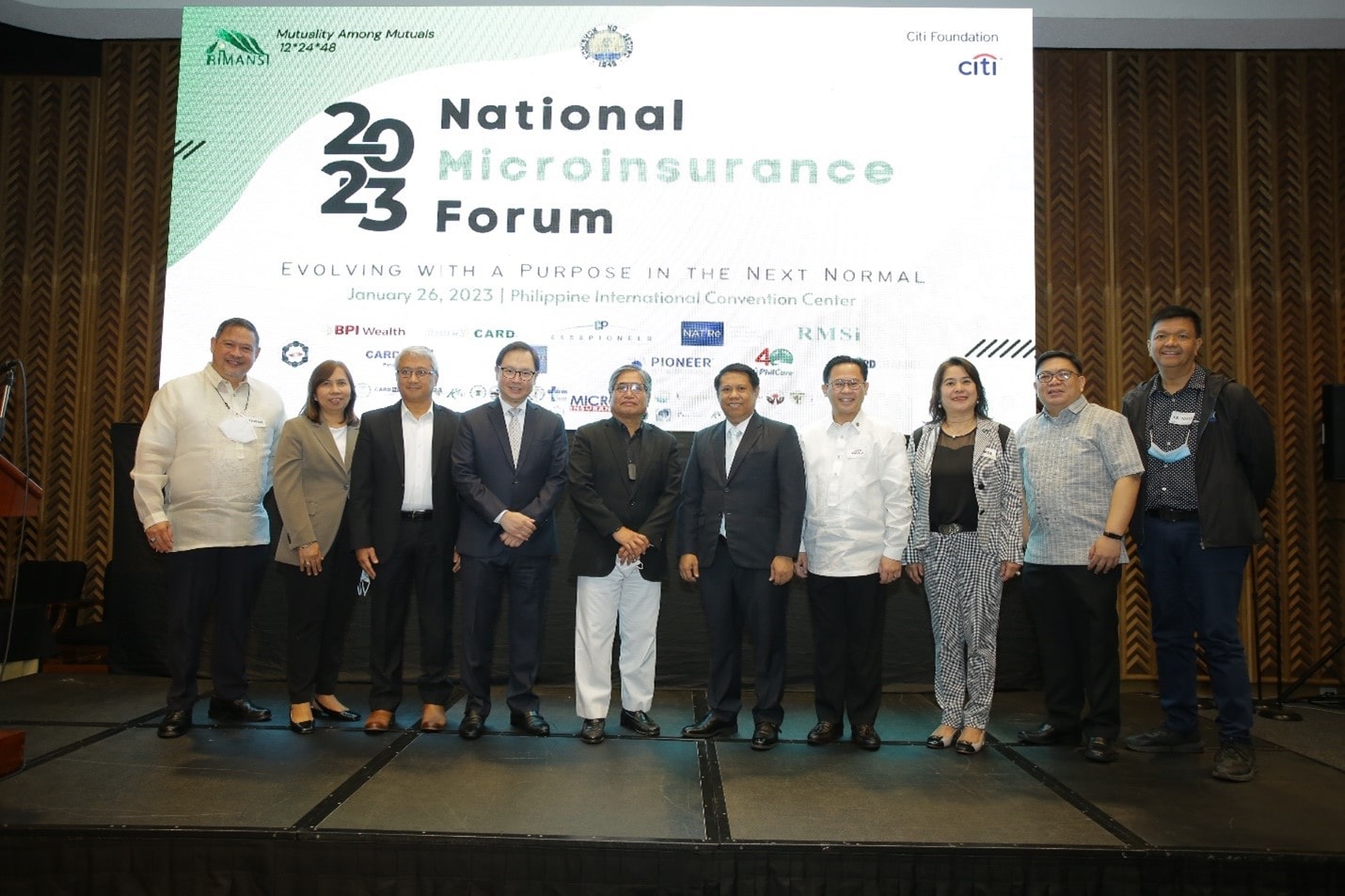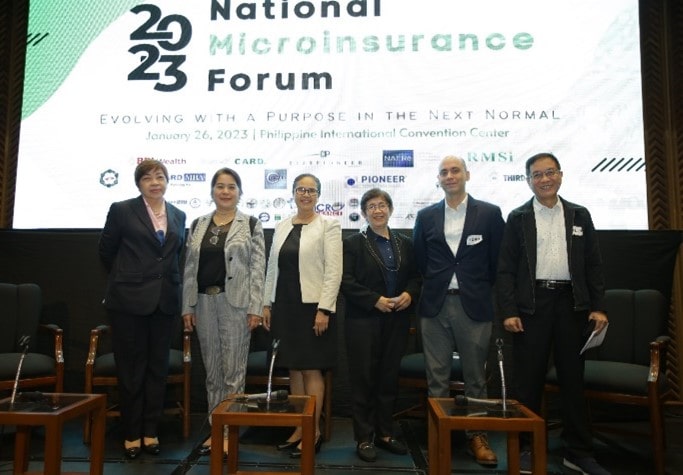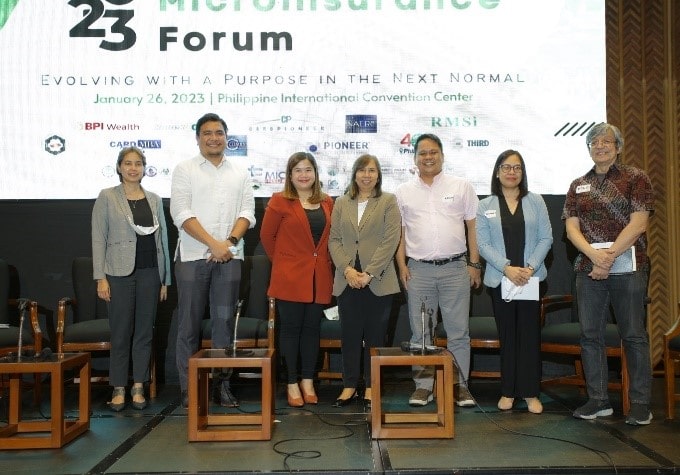In the wake of the COVID-19 pandemic, technology has played an even more central role in society. Due to community lockdowns and restrictions on mobility and mass gatherings implemented across the globe, almost all aspects of life became tech-driven, where most operations were performed remotely and digitally to help contain the virus[1]. Two years later, as the world appears to have gradually defeated the virus and is now moving forward to the new normal, everyone continues to embrace the “tele-everything” world or the adoption of remote processes in everyday life, especially in the workplace[2].
With this, the microinsurance industry, specifically, microinsurance providers, are challenged to adjust to the rapidly accelerating technologies and other obstacles caused by the pandemic. One of which is the fluctuations in membership numbers from the low-income population, whom they serve, caused by sudden or permanent loss of livelihood, food insecurity, disease and death caused by the virus. Another challenge they recognized is the inefficiencies highlighted by the pandemic, such as, cash heavy and paper heavy financial transactions, slow claims and notification to members, and other halted transactions caused by disasters and/or crises.
In face of these challenges and opportunities, many microinsurance providers have established a new way of performing their functions. Now, digital platforms are being utilized to augment their value chain[3]. Moreover, the Microinsurance MBA Association of the Philippines Inc. (MiMAP), also known as RIMANSI, a network of mutual microinsurers in the Philippines, has promised to guide its members to the threshold of the digital revolution.
However, MiMAP (RIMANSI) also recognizes that rapid digitalization can pose threats, especially to the most vulnerable sectors. Without digital literacy and skills education for the marginalized, digital transformation will only exacerbate social inequalities, discrimination, and poverty[4]. With this, MiMAP (RIMANSI) commits to bridge the gaps in digital financial literacy among marginalized groups with the project entitled “FinTech for Greater Financial Inclusion Program”, supported by the Citi Foundation. Generally, the project aims to: (1) enhance and replicate the previously developed Mi-MBA mobile application for other Mi-MBAs, (2) integrate e-money to
[3] Juta, & Ives. (2017, September 18). The future of insurance in a digital world. Insurance Asia. Retrieved January 18 from https://insuranceasia.com/insurance/commentary/future-insurance-in-digital-world
[1] JAKIMOWICZ. (2020, October 20). Back to Work: How Technology Can Help Create a New Normal. Back to Work: How Technology Can Help Create a New Normal | Data-Smart City Solutions. Retrieved January 18, 2023, from https://datasmart.ash.harvard.edu/news/article/back-work-how-technology-can-help-create-new-normal
[2] Andersen, Raine, & Vogels. (2021, February 18). Experts Say the ‘New Normal’ in 2025 Will Be Far More Tech-Driven, Presenting More Big Challenges. Pew Research Center: Internet, Science & Tech. Retrieved January 18, 2023, from https://www.pewresearch.org/internet/2021/02/18/experts-say-the-new-normal-in-2025-will-be-far-more-tech-driven-presenting-more-big-challenges/
[4] DISD/DPIDG. (2021, February 18). Leveraging digital technologies for social inclusion | DISD. United Nations Department of Economic and Social Affairs. https://www.un.org/development/desa/dspd/2021/02/digital-technologies-for-social-inclusion/
the mobile application, and (3) mobilize members for financial education, mobile application subscription, and e-money account opening.
This initiative is a succeeding program of the IT/MIS component of the project “Building Microinsurers’ Capacity for Greater Financial Inclusion Program III” which aimed to support the growth strategy of Mi-MBAs to expand access of microinsurance products to uninsured and low-income households. Through this previous program, more than 30,000 members were successfully reached for the member-learning component and a mobile application that can be used for data management was developed, piloted by two Mi-MBAs. With the new program, the mobile application will now be enhanced and replicated to three new Mi-MBAs.
Ms. Pelagia Mendones, General Manager of CARE MBA – one of the pilot Mi-MBAs of the previous mobile application program – has shared that the mobile application can help them achieve their organization’s goals.
“[The] mobile app helps us in achieving our goals by having a faster communication, giving updates about products and services. We can quickly respond to their [members] queries and concerns. We can easily trace members’ contribution from cooperatives/banks,” Ms. Mendones explained.
The mobile application was formally launched by MiMAP President and ASKI MBA CEO Ms. Emeteria Quijano in the recently held National Microinsurance Forum organized by MiMAP (RIMANSI) in partnership with Citi Foundation on January 26, 2023, at the Philippine International Convention Center (PICC).

Like the “FinTech for Greater Financial Inclusion Program”, the National Microinsurance Forum is also one of the important efforts of MiMAP (RIMANSI) in guiding and supporting its members. The forum is an annual event organized in celebration of the National Microinsurance Month every January, which aims to provide an avenue to discuss challenges and opportunities for the microinsurance industry. This year, the central theme was “Evolving with a Purpose in the Next Normal”, focusing on how microinsurance providers can adapt in a fast-changing and uncertain world and serve a higher purpose in protecting the lives of millions of Filipinos.
Over 300 individuals from Microinsurance-Mutual Benefit Associations (Mi-MBAs), Microfinance Institutions (MFIs), Cooperatives (Coops), partner government and private sectors, and microinsurance providers and promoters in the country attended the forum.
During the forum, important stakeholders and keynote speakers participated in policy discussions and gave messages which highlighted the support of government and the private sector for overall microinsurance growth.
Citi Philippines Managing Director and Head of Markets & Country Treasurer Paul Favila reviewed the following lessons and priorities realized by the institution during the pandemic in his opening message: investing in education, strengthening digitalization, and emphasizing a creative, resilient, and inclusive work culture. Citi Foundation also expressed their commitment to achieve financial inclusion by supporting the needs of the microinsurance industry and providing financial protection to low-income households.

Deputy Insurance Commissioner of Legal Services Group Atty. Randy Serrano, one of the keynote speakers, announced Insurance Commission’s plan to release a new framework following the “financial inclusion for economic growth” strategy of the Department of Finance (DOF). Atty. Serrano also stated that the Commission has endorsed to Congress a bill proposing to exempt microinsurance products from taxes.
There were also policy and panel discussions in the forum which covered topics on tax segmentation for the low-income sector, opportunities for microinsurers to improve their capital efficiency, and the significance of being customer-centric of microinsurance providers in the country.
The discussions highlighted the lowering of taxes on non-life insurance products as well as the omittance of the clause repealing the 2% preferential tax rate for microfinance NGOs from the Package 4 of TRAIN Law. In addition to this, since uncertainties from the previous years brought about by the pandemic are slowly subsiding, investments and digitalization of microinsurance products are now being encouraged to ensure the steady recuperation of the microinsurance industry. Making the products and services accessible through utilization of various digital platforms and technological enhancements would aid the industry’s efforts to maintain its customer-centric approach. After all, positive experience is the end goal of customer-centricity and the purpose of digital transformation.


(From left to right) — TSPI MBA President and CEO Alice Cordero, MiMAP President and ASKI MBA CEO Emeteria Quijano, KMBA General Manager Silvida Antiquera, CARE MBA General Manager Pelagia Mendones, BPI AMTC Head of Fixed Income Markets Luis Antonio Zialcita, and MiMAP Independent Trustee Wilfredo Llanto participates in the panel discussion: “Improving capital efficiency”. In the afternoon, BSP Consumer Protection and Market Conduct Office Director Atty. Charina De Vera-Yap, Insurance Commission Microinsurance Division Manager Atty. Gideon Operiano, CPMI Microinsurance Department Head Melinda Grace Labao, MiMAP VP and CARD MBA CEO Jocelyn Dequito, CLIMBPS VP for Sales Renan Diaz, PhilCare SAVP for Customer Experience Sonia Nono, and MiMAP Independent Trustee Camilo Casals participates in the last panel discussion of the forum: “Creating value through customer-centricity”.
The National Microinsurance Forum was supported and attended by the following sponsors: 1CISP, BPI AMTC, CARD MBA and Konek2CARD, CLIMBS, CPMI and Pioneer Insurance, NatRe, PhilCare, RMSI, and Third Channel.
Through initiatives like the “FinTech for Greater Financial Inclusion Program” and the National Microinsurance Forum, MiMAP (RIMANSI), the Philippine government and other private stakeholders continue to provide guidance for mutual microinsurers in navigating a tech-driven and changing world. These efforts help build a promising future for the microinsurance industry.
About Citi Foundation:
The Citi Foundation works to promote economic progress and improve the lives of people in low-income communities around the world. We invest in efforts that increase financial inclusion, catalyze job opportunities for youth, and reimagine approaches to building economically vibrant cities. The Citi Foundation’s “More than Philanthropy” approach leverages the enormous expertise of Citi and its people to fulfill our mission and drive thought leadership and innovation.
About MiMAP (RIMANSI):
The Microinsurance MBA Association of the Philippines Inc. (MiMAP) or RIMANSI helps professionalize the management of microinsurance mutual benefit associations (Mi-MBAs) and microinsurance programs to provide affordable, comprehensive, and quality risk protection to millions of poor people in Asia and the Pacific. Towards this purpose, MiMAP assists Mi-MBAs in developing risk management solutions, building capacities, advocating for appropriate policy environment, and pursuing research & development agenda.
###
